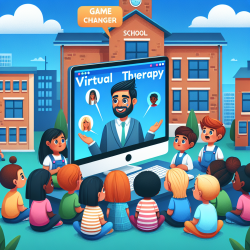The COVID-19 pandemic has drastically altered the landscape of medical education and practice, thrusting virtual care into the spotlight. As practitioners, understanding these changes is crucial for adapting and thriving in this new environment. A recent study titled An unexpected transition to virtual care: family medicine residents’ experience during the COVID-19 pandemic provides valuable insights into this transition.
The Shift to Virtual Care
The pandemic necessitated a rapid shift from traditional face-to-face appointments to virtual solutions. This transition was particularly impactful for family medicine residents, who experienced both challenges and opportunities in their training. The study highlights two main themes: Residents’ experiences with virtual learning and care, and their personal lives during the pandemic.
Challenges Faced by Residents
- Loss of Hands-On Experience: Residents reported a significant reduction in hands-on clinical skills training, such as physical examinations.
- Disruption of Self-Care Routines: The pandemic disrupted personal routines, affecting mental health and work-life balance.
- Lack of Social Support: Limited interactions with peers and preceptors hindered social support systems crucial for decision-making about future practice locations.
Opportunities for Skill Enhancement
- Improved Technological Proficiency: The necessity of using digital platforms enhanced residents' tech skills, preparing them for future telehealth practices.
- Adaptation to Virtual Learning: Despite initial challenges, residents adapted to new learning modalities, which could be integrated into future curricula.
Recommendations for Practitioners
The study suggests several recommendations for improving residency training and practice in a virtual setting:
- Develop Virtual Care Training Curricula: Collaborate with professional bodies to create standards and curricula that incorporate both virtual and hands-on training.
- Ensure Adequate Hands-On Training: Explore extending residency programs or offering enhanced skills programs to ensure comprehensive clinical training.
- Invest in Virtual Care Infrastructure: Support primary care practices with necessary resources, including new billing codes and technology upgrades.
The insights from this study are invaluable for practitioners seeking to enhance their skills in a post-pandemic world. By embracing these changes and recommendations, medical professionals can ensure they are well-equipped to provide effective care in any setting.
To read the original research paper, please follow this link: An unexpected transition to virtual care: family medicine residents’ experience during the COVID-19 pandemic.










